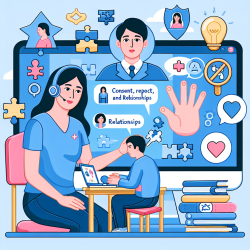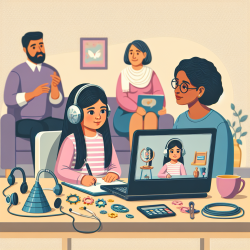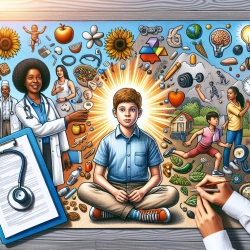Empowering Practitioners: Enhancing Sexual Knowledge in Adults with Autism
In the realm of autism spectrum disorders (ASD), understanding the nuances of sexual knowledge and victimization is crucial for practitioners dedicated to improving the lives of their clients. A recent study published in the Journal of Autism and Developmental Disorders provides significant insights into these areas, highlighting the disparities in sexual knowledge and the increased risk of victimization among adults with ASD compared to their neurotypical peers.
Key Findings from the Study
The study involved 95 adults with high-functioning ASD and 117 adults without ASD, examining their sources of sexual knowledge, actual and perceived knowledge, and experiences of sexual victimization. The findings revealed that adults with ASD:
- Acquire less sexual knowledge from social sources such as peers, parents, and teachers.
- Rely more on non-social sources like television, the internet, and even pornography.
- Have lower levels of both perceived and actual sexual knowledge.
- Experience higher rates of sexual victimization, including unwanted sexual contact and coercion.
Implications for Practitioners
These findings underscore the importance of targeted interventions to enhance sexual knowledge among individuals with ASD. Practitioners can play a pivotal role in bridging the knowledge gap by:
- Developing tailored educational programs that address the unique learning needs of individuals with ASD.
- Encouraging open communication between individuals with ASD and their caregivers or educators about sexual health and safety.
- Utilizing evidence-based strategies to deliver accurate and comprehensive sexual education.
Encouraging Further Research
While this study provides valuable insights, it also highlights the need for further research to explore additional factors that may contribute to the increased risk of victimization in this population. Future studies could investigate the role of socio-communicative deficits and other behavioral factors in shaping sexual experiences and knowledge acquisition.
Conclusion
Practitioners working with individuals with ASD have a unique opportunity to make a meaningful impact by enhancing sexual knowledge and reducing the risk of victimization. By leveraging research findings and adopting a proactive approach, they can empower individuals with ASD to navigate their sexual health with confidence and safety.
To read the original research paper, please follow this link: Sexual Knowledge and Victimization in Adults with Autism Spectrum Disorders.










